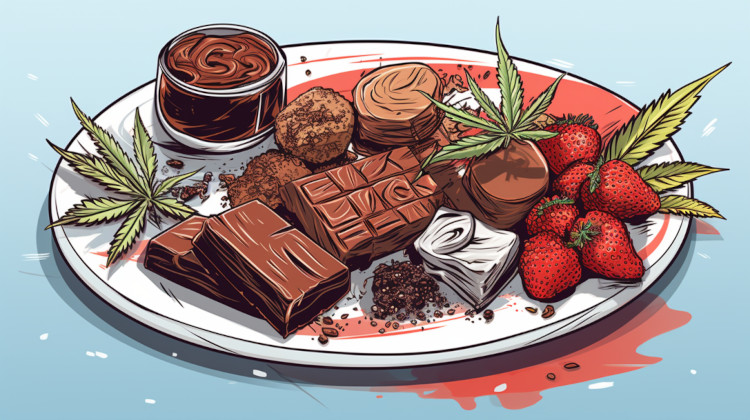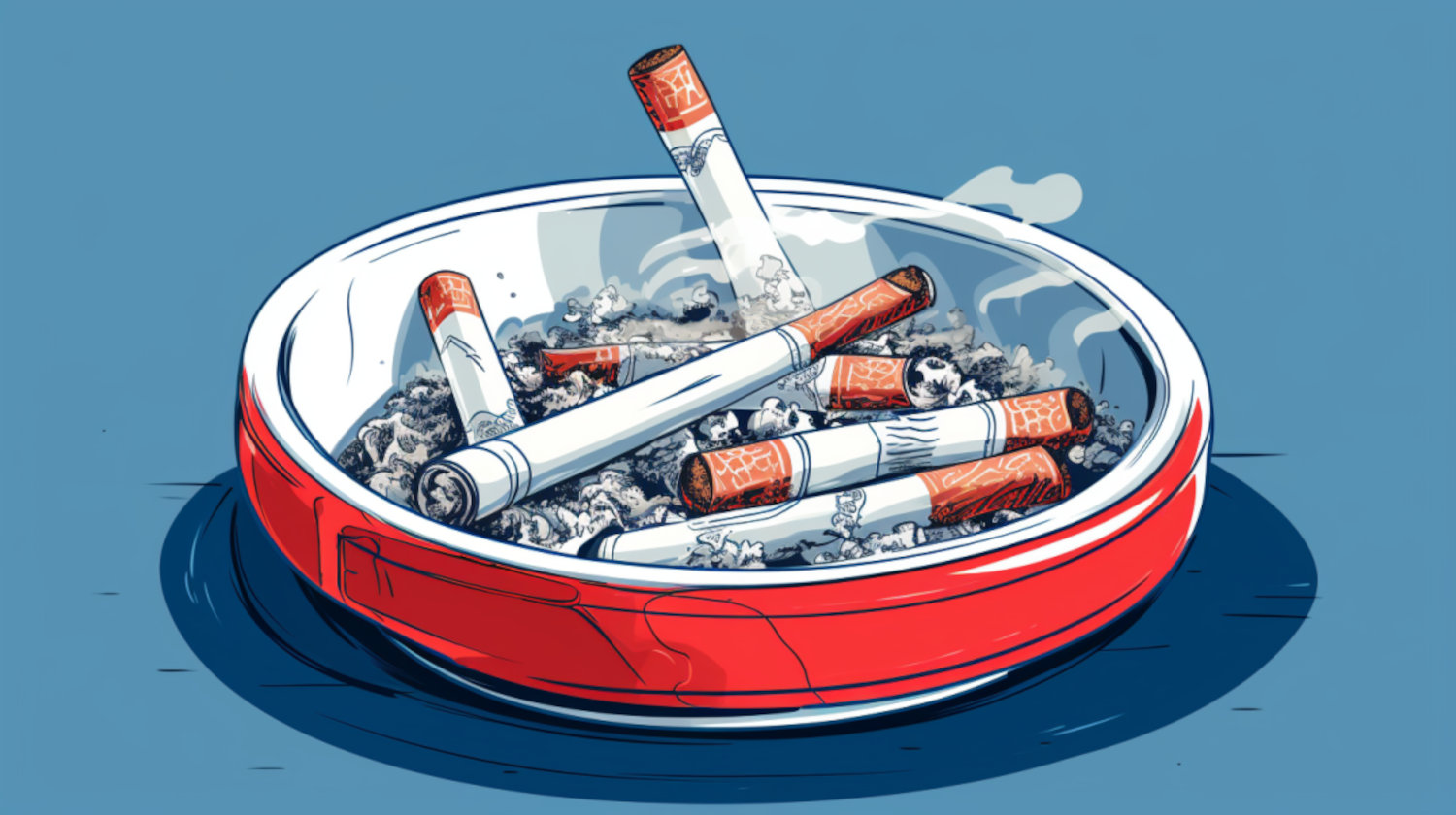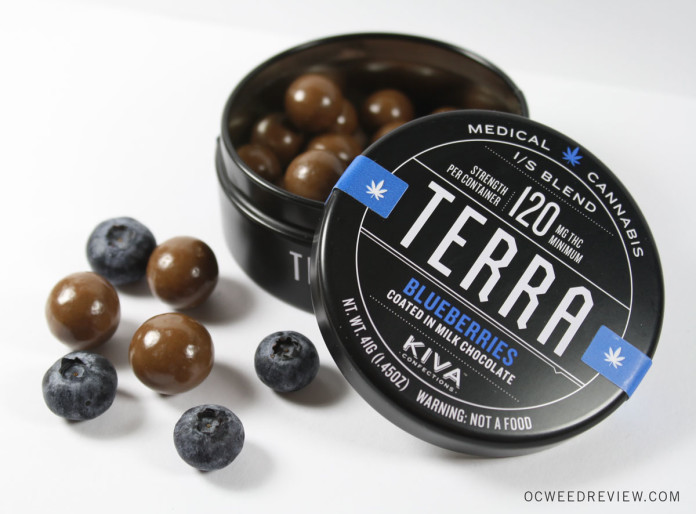According to the World Health Organization (WHO), tobacco smoking claims the lives of up to half of non-quitters. Regardless of risks, approximately 28.3 million U.S. adults regularly retain the habit, and some 2.8 million U.S. middle and high school students admittedly use at least one tobacco product.
Picking up the habit may be easy, but packing it in is an entirely different story for most tobacco users. Due to the addictive properties of nicotine, smokers often face an uphill battle with dependence, which can cause sleep disturbances, irritability, anxiety, and depression. Statistics indicate that for people aged 12 or older in 2020, 8.5% (or around 23.6 million people) had nicotine dependence in the past 30 days.
That's without even considering the adverse health consequences associated with cigarettes. According to the Centers for Disease Control and Prevention (CDC), more than 16 million Americans are leading their daily lives with smoking-related diseases, such as cancer, chronic obstructive pulmonary disease (COPD) — including chronic bronchitis and chronic obstructive pulmonary disease (COPD) — diabetes, heart disease, lung disease, and stroke.
Debilitating and sometimes life-threatening, tobacco smoke is plagued with toxic chemicals. Secondhand smoke exposure contributes to approximately 41,000 deaths among nonsmoking adults and 400 deaths in infants each year.
Fortunately, there are ways to kick cigarettes to the curb for good. When nicotine patches, chewable tablets, inhalators, and mouth sprays don't work, many tobacco smokers consider the potential of using CBD to quit smoking.
So, can CBD help you quit smoking? Prepare for a breath of fresh air in the form of some inspirational, medically-backed information.
Why Quit Smoking?
Tobacco smoking is the leading preventable cause of death and disease in the United States. Almost all of the body's organs are affected by smoking, which has a significant impact on the respiratory system and central nervous system. Smoking of any kind, including weed smoking, can harm the lungs. However, according to the American Lung Association, burned tobacco emits over 7,000 predominantly toxic chemicals.
Based on figures published by the American Cancer Society, tobacco-causing diseases claim the lives of more than 480,000 people — equating to one in five of all deaths — annually. What's more, studies indicate that smoking may increase the risk of developing severe COVID-19 complications, including death.
Listed below are a few common health conditions that may amplify or even transpire with heavy smoking:
- Cancer - Cigarette smoke is essentially poison for the body and can deplete the immune system, making it more difficult to kill cancer cells. Cancer can develop in any part of the body due to heavy smoking.
- High blood pressure (hypertension) - Nicotine promotes the release of blood pressure-increasing hormones called epinephrine and norepinephrine.1
- Chronic obstructive pulmonary disease (COPD) - Cigarette smoke is overloaded with chemicals that diminish the lungs' defense mechanism against infections. Consequently, heavy smokers may have swollen or inflamed air tubes, narrow air passages, and damaged air sacs. When combined, these factors may cause COPD.
- Diabetes - Smokers are 30% to 40% more likely to develop Type 2 diabetes. The reason is that nicotine alters cells, making them non-responsive to insulin, thus escalating blood sugar levels to dangerous levels.
- Cardiovascular disease - As noted by the Centers for Disease Control and Prevention (CDC), even light smokers who puff on less than five cigarettes daily may exhibit early signs of heart disease. Smoking tobacco may also trigger other types of cardiovascular disease and conditions, such as stroke, arrhythmia, and coronary artery disease.
- Respiratory disease - The airways and tiny air sacs (alveoli) that make up the lungs become damaged by cigarette smoke, which may lead to increased rates of chronic bronchitis and emphysema.
Some additional risks of tobacco smoking include gum disease, yellowing of the teeth, erectile dysfunction (in males), weakened immune system, blood clots, prematurely aging skin, and pregnancy complications/infertility. Lesser-known mental and physical health risks of smoking include delayed wound healing, mental health problems, and vision changes or loss: all the more reason to try CBD to quit smoking if other methods haven’t worked.
Fortunately, the number of people who are attempting to quit smoking cigarettes is gradually climbing, and with the right approach, you could succeed with tobacco cessation. According to the CDC, in 2018, one in ten smokers succeeded in quitting, while over 50% of smokers made attempts to quit.
Why is Quitting So Hard?

Nicotine is the primary culprit that makes it so difficult to quit smoking. According to the American Heart Association, nicotine can be as addictive as cocaine or heroin. Unfortunately, as a legal substance, tobacco is easily accessible and lures many people, many of whom are unaware of the adverse health effects until years of irreparable damage.
Many commonly abused drugs release a neurotransmitter and hormone called ‘dopamine,' meaning that the user experiences pleasure after using them. Once a person ceases the use of the substance, dopamine deficiency occurs. The result? Low motivation, anxiety, intrusive thoughts, achy muscles, poor balance and coordination, and tremors. Numerous medical conditions are also associated with low dopamine levels, such as depression, Parkinson's disease, restless leg syndrome, and Attention deficit hyperactivity disorder (ADHD).2
According to a 2009 study, smokers stated that their inability to stop smoking cigarettes was related to addiction, habit, and stress, and many smokers disagreed that it was due to biological factors, mental illness, or psychological problems. The researchers also noted that smokers who associated it more with being a habit than being associated with a mental illness said they were less likely to seek out treatment for quitting.3
A slew of campaigns are continuously being released to encourage smokers to give up the habit. In the future, the FDA hopes to impose strict rules limiting the nicotine content of tobacco products to "minimally addictive" or "non-addictive" levels, but the date of implementation remains unclear.
Can CBD Help You Quit Smoking?
You may have heard about the benefits of using CBD for anxiety or CBD for sleep, but can you use CBD to quit smoking?
A swelling pool of people claims that they have quit smoking with gummies and other CBD-based products, such as tinctures, vapes, and edibles. Considering the cannabinoid's scientifically proven ability to reduce anxiety, minimize cravings, and promote a healthy night's sleep, it could be just the tool for a smooth, smoke-free transition.
One scientific review published by the American Chemical Society found that "Decreased expression or inhibition of CYP2A6 activity reduces nicotine metabolism and has been suggested as a primary target for tobacco cessation strategies, resulting in a reduction of the number of cigarettes necessary for a smoker to maintain a given nicotine level leading to diminished smoking overall."4
Furthermore, the researchers pointed to a study by Hindochoa et al. that found that vaping cannabis was associated with decreased tobacco consumption, and a single 800 mg oral dose of CBD reduced the salience and pleasantness of cigarette cues compared with a placebo group.5
People who carry inactive CYP2A6 alleles have lower nicotine metabolism, meaning that there is a reduced chance of them becoming addicted; those who do take up the habit generally smoke fewer cigarettes per day.6 This is worth noting because CBD and 7-OH-CBD have inhibitory effects on CYP2A6-mediated nicotine metabolism. Consequently, CBD use may minimize the adverse effects of smoking by acting as an agent for tobacco cessation therapy.
Although studies are ongoing, and there is a significant lack of scientific research in this area, the existing evidence suggests that CBD may work well as a therapeutic alternative for tobacco dishabituation. Moreover, researchers note that "CBD can modulate dopaminergic neurotransmission in the mesolimbic circuit through the direct regulation of dopamine synthesis, release or effects on dopamine receptors.”
The endocannabinoid system (ECS) — the body's complex cell-signaling network — plays an integral role in CBD-mediated effects on drug reward, involving the regulation of endocannabinoid signaling via the alteration of anandamide (AEA) levels and CB1R or CB2R function. Serotonin 5-HT1A receptors amass significant attention as a target for psychiatric disorder treatment and are heavily involved in the effects of CBD on substance addiction.7
One study by a team of Washington State University researchers discovered that CBD may inhibit nicotine metabolism. To glean their findings, the team tested CBD on microsomes from human liver tissue and specialized cell lines to determine its effects on nicotine metabolism. CBD inhibited numerous enzymes – including CYP2A6 – and the researchers hypothesized that CBD could reduce the desire to smoke cigarettes. Separate research indicates that more than 70% of nicotine is metabolized by CYP2A6, even after the administration of small doses of CBD.3
Risks of Using CBD to Stop Smoking

Just like any other substance, consumers must consume CBD cautiously, especially so when trying to quit smoking. Each person's unique biochemistry and genetics may influence CBD's physical and mental effects, gender, weight, age, and tolerance. The body and mind undergo intense change when there is an absence of dopamine, so it's important to avoid using any substances that may worsen withdrawal symptoms or amplify stress.
Although CBD is usually well-tolerated at low doses — with the recommended safe dosage being between 20 and 1,000 milligrams (mg) daily — CBD does produce adverse side effects in some users, such as appetite loss, dry mouth, diarrhea, drowsiness, and fatigue. The non-intoxicating cannabinoid may also interact with blood thinners and other types of medication, either amplifying or reducing their effects.8,9
Harvard researchers confirm several commonly reported CBD-induced drug interactions when the cannabinoid is used alongside antidepressants, epileptic drugs, and opioid analgesics.
CBD consumers should also consider the discrepancies in product purity and dosage. One study of 84 CBD products purchased online revealed that more than a quarter of online-bought have a lower CBD content than the label indicates. Additionally, researchers detected the presence of the intoxicating element THC in 18 CBD products.
The analysis found that "42.85% of products were under-labeled, 26.19% were over-labeled, and 30.95% were accurately labeled." The researchers also noted that "accuracy of labeling depended on product type, with vaporization liquid most frequently mislabeled."10
How to Use CBD to Quit Smoking
When using CBD to stop smoking, there are a few things to keep in mind: product concentration, dosage, consumption methods, and, of course, the source. Opting for quality-made and tested CBD products is the better choice to avoid unknowingly consuming high levels of THC, and full-spectrum products may be more effective since the whole-plant compounds can work synergistically for optimum effects.
A single 800‐mg oral dose of CBD may reduce "salience and pleasantness of cigarette cues, compared with placebo, after overnight cigarette abstinence in dependent smokers," reads one study. Researchers note that CBD "did not influence tobacco craving or withdrawal or any subjectively rated side effects."5
Another study published in Frontiers Pharmacology in 2021 assessed the effects of CBD on smokers aiming to quit the habit. Per the findings, researchers found that when inhaled over the course of a week, CBD was effective at reducing the number of cigarettes smoked. However, while the researchers did not find that CBD diminished the participants' craving for nicotine, it did slightly reduce anxiety levels after one week.7
Dosage and potency/concentration aside, smokers using CBD to stop smoking should choose the route of administration carefully. While smoking and vaping may offer fast-acting effects, these consumption methods may cause lung inflammation if used in excess. For longer-lasting but slower-acting effects, consumers may want to try CBD edibles or infused drinks. Capsules, supplements, pills, and gummies also provide effects for 5-8 hours and can be consumed discreetly on the move.8
In addition to using CBD as a method of reducing tobacco cravings, consumers might also try CBD to quit smoking as a way to ease specific symptoms of tobacco withdrawal, such as anxiety, depression, poor cognition, and locomotor behaviors. However, the research also demonstrates that there are limitations, largely that the anxiolytic and antidepressant properties of CBD can depend on the species/strain, age, gender, doses, route of administration, and time course.11
Nonetheless, researchers must delve deeper into CBD's safety and efficacy for tobacco cessation with large-scale animal and human models.
Tips for Buying CBD Products to Quit Smoking

Now that you know more about the potential of using CBD to quit smoking, you may wonder which product is better: edibles or smoking? While these are not the only product options, they are among the most popular.
Take time to research companies and brands before buying. Read customer reviews. And find out where the company sources its CBD (there is a difference between hemp and cannabis-derived CBD).
Here are some product options to consider:
- Some consumers choose gummies to stop smoking - Consumer choices for helping to quit smoking include Charlotte's Web Hemp CBD Gummies and WYLD CBD Peach-flavored Gummies, which are gluten-free and contain 20mg CBD + 10mg CBC.
- Smoking CBD to quit smoking - Smoking CBD, whether in the form of a joint, gravity bong, or even dabbing CBD concentrates, ensures fast-acting effects. However, the effects may be more short-lived than CBD gummies, which can last up to eight hours.
The above products have been positively reviewed by consumers who were trying to quit smoking. However, every person is different, and the above product options are based on popular opinion and do not constitute medical recommendations.
References
- Tsai SY, Huang WH, Chan HL, Hwang LC. The role of smoking cessation programs in lowering blood pressure: A retrospective cohort study. Tob Induc Dis. 2021;19:82. Published 2021 Oct 22. doi:10.18332/tid/142664
↩︎ - Juárez Olguín H, Calderón Guzmán D, Hernández García E, Barragán Mejía G. The Role of Dopamine and Its Dysfunction as a Consequence of Oxidative Stress. Oxid Med Cell Longev. 2016;2016:9730467. doi:10.1155/2016/9730467
↩︎ - Hughes JR. Smokers' beliefs about the inability to stop smoking. Addict Behav. 2009;34(12):1005-1009. doi:10.1016/j.addbeh.2009.06.013
↩︎ - Nasrin S, Coates S, Bardhi K, Watson C, Muscat JE, Lazarus P. Inhibition of Nicotine Metabolism by Cannabidiol (CBD) and 7-Hydroxycannabidiol (7-OH-CBD). Chemical Research in Toxicology. 2023;36(2):177-187. doi.org/10.1021/acs.chemrestox.2c00259
↩︎ - Hindocha C, Freeman TP, Grabski M, et al. Cannabidiol reverses attentional bias to cigarette cues in a human experimental model of tobacco withdrawal. Addiction. 2018;113(9):1696-1705. doi.org/10.1111/add.14243
↩︎ - Tyndale RF, Sellers EM. Genetic Variation in CYP2A6-Mediated Nicotine Metabolism Alters Smoking Behavior. Therapeutic Drug Monitoring. 2002;24(1):163-171. doi.org/10.1097/00007691-200202000-00026
↩︎ - Navarrete F, García-Gutiérrez MS, Gasparyan A, Austrich-Olivares A, Manzanares J. Role of Cannabidiol in the Therapeutic Intervention for Substance Use Disorders. Frontiers in Pharmacology. 2021;12. doi.org/10.3389/fphar.2021.626010
↩︎ - MacCallum CA, Russo EB. Practical considerations in medical cannabis administration and dosing. European Journal of Internal Medicine. 2018;49(49):12-19. doi:https://doi.org/10.1016/j.ejim.2018.01.004
↩︎ - Huestis MA, Solimini R, Pichini S, Pacifici R, Carlier J, Busardò FP. Cannabidiol Adverse Effects and Toxicity. Current Neuropharmacology. 2019;17(10):974-989. doi.org/10.2174/1570159X17666190603171901
↩︎ - Bonn-Miller MO, Loflin MJE, Thomas BF, Marcu JP, Hyke T, Vandrey R. Labeling Accuracy of Cannabidiol Extracts Sold Online. JAMA. 2017;318(17):1708-1709. doi:https://doi.org/10.1001/jama.2017.11909
↩︎ - García-Gutiérrez MS, Navarrete F, Gasparyan A, Austrich-Olivares A, Sala F, Manzanares J. Cannabidiol: A Potential New Alternative for the Treatment of Anxiety, Depression, and Psychotic Disorders. Biomolecules. 2020;10(11). doi:https://doi.org/10.3390/biom10111575
↩︎
The information in this article and any included images or charts are for educational purposes only. This information is neither a substitute for, nor does it replace, professional legal advice or medical advice, diagnosis, or treatment. If you have any concerns or questions about laws, regulations, or your health, you should always consult with an attorney, physician or other licensed professional.




